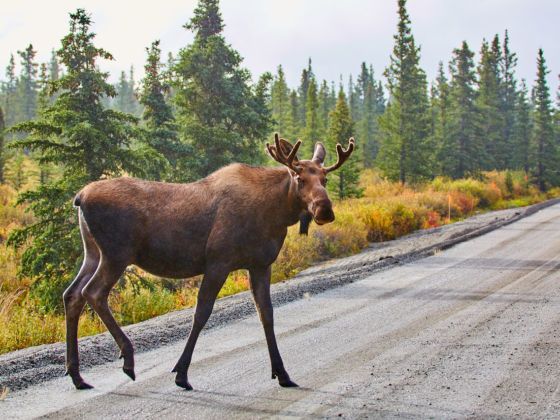Thousands of animals are killed on roads and highways in the United States every year. One of life’s great mysteries: What happens to them?
Drivers are familiar with roadkill. Many have driven past a dead deer or skunk on the highway, thought, “Oh, the poor thing,” and then continued driving. Maybe the next day we drive the same road and find the carcass has disappeared. Most dead animals are dragged into the woods and devoured by other hungry animals, or scavenged by crows right there on the roadside. In Alaska, however, the roadkill process is a little different.
